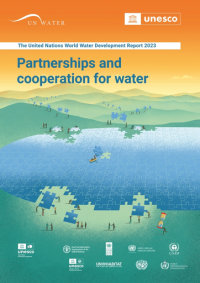Regional Perspectives

Book Chapter 8: Of the 771 million people still lacking even a basic drinking water service in 2020, half lived in Sub-Saharan Africa (WHO/UNICEF, 2021). There is a widening gap in water supply between urban and rural dwellers (Adams et al., 2019; Grasham et al., 2019; Niva et al.,
2019) where governments have not been able to expand the necessary infrastructure to meet growing demand. Developing water infrastructure, harnessing ground water resources, addressing climate change effects and investing in science and technology under an enabling political and institutional environment are key areas needed to drive sustainable water security. Given the multifaceted nature and the magnitude of water challenges in the region, strategic collaboration among stakeholder groups is deemed crucial and a necessity for reaching solutions. However, even though some efforts have been made recently to mitigate this problem, the coordination, communication and exchange of the generally limited data and information available to African water stakeholders has been very weak due to the lack of appropriate strategies and platforms to establish a fruitful dialogue between researchers, decision-makers and community members (see Chapter 10).
This chapter presents a few cases of strategic partnerships on water development in Sub-Saharan Africa, ranging from community-based to regional and international levels.
